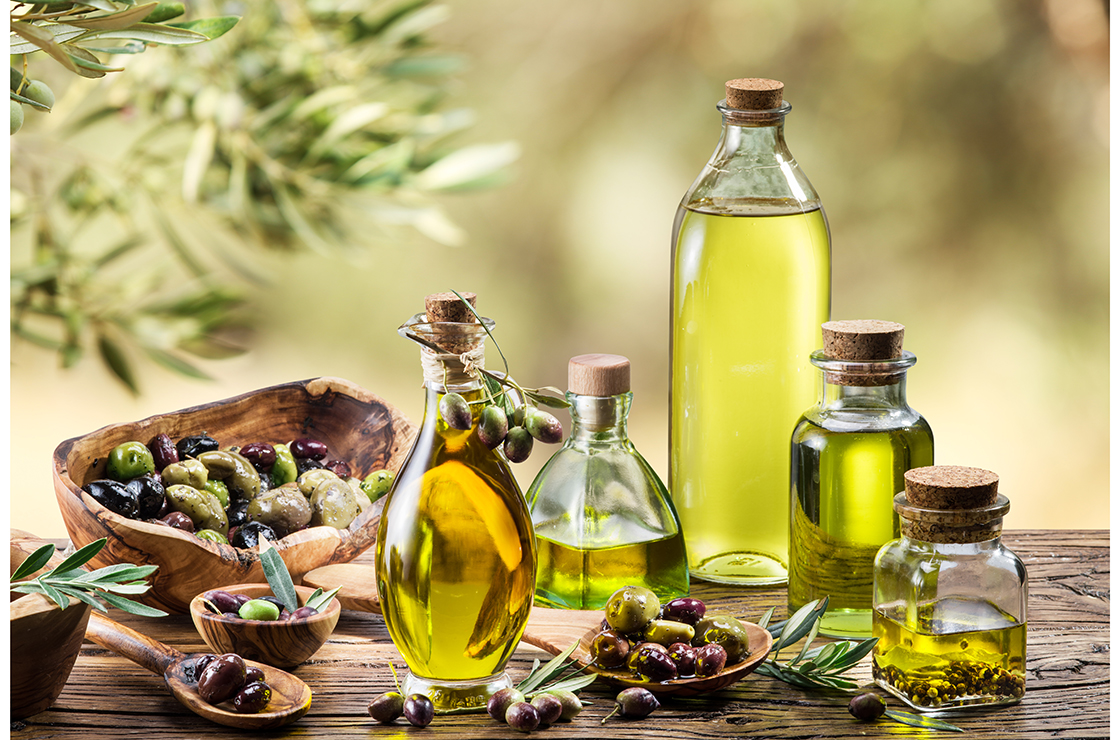
Olive oil and berries are on the wooden table under the olive tree.

Cooking oil is an important part of every diet. If you wondering which oil is best for you, here are some tips that can help you determine.
Cooking oils are an essential part of our daily meals and choosing the right cooking oil can make a world of difference to your health. Each oil has its own properties that serves different purposes. Also, there have been many studies that correlate the fatty acid content in oils with cholesterol levels, cardiovascular and skin health, and fitness and wellness, which makes it important to choose cooking oil for a healthy lifestyle and make a conscious choice while purchasing cooking oil.
Here are quick and simple tips to understand for choosing the right cooking oil
1. Smoking point
The smoke point is the temperature at which the solids in the oil begin to burn and denature. Even though all oils smoke but every cooking oil has a different temperature threshold based on its composition that determines the ideal cooking method that particular oil should be used for. So, higher the smoking point, higher is the suitability for frying food.
2. Consider the flavor of the oil
In-terms of flavour matching, consider the function of the oil in your recipe. For lubricant in the cooking process, go for oil that is light in flavour, whereas if the flavour of the oil is to play a role in the dish opt for one with a distinguished. Hence, choose wisely, and your oil will enhance your dish, instead of adding a bizarre flavouring element.
3. Check on nutritional considerations
Cooking oil should be enriched with vitamins such as A, E and D which are an essential part of our diet. Vitamin A is key for good vision, healthy immune and growth. Vitamin E is an antioxidant that protects body tissue damaged caused by free radicals. Vitamin D is essential for immunity and strong bones. All of these nutrients are vital when opting for the right cooking oil.
4. The fat content
Cooking oil typically consists of 3 types of Fatty Acids: Monounsaturated Fatty Acid (MUFA), Polyunsaturated Fatty Acid (PUFA) and Saturated Fatty Acid (SFA). Saturated fats are highly stable that resists oxidation while both polyunsaturated and monounsaturated helps in preventing diseases like high cholesterol and heart attack. So, marking a balance should be considered between these acids and as with any fat, we should use and consume it sparingly.
5. The price preference
As with most things in life, you get what you pay for. Price simply being a good indicator of quality. And yes, quality cooking oils cost more because they are more difficult to produce. Well, the harder the production of the oil, the more expensive they cost on the shelf. So, to note it is always better to buy quality oil in small quantities, rather than a lot of a cheap oil in bulk.
Over to you:
Thus, balancing your flavour choice with cooking method, checking up the smoking point, nutritional considerations and price, and there will always be a right oil selection for you.







